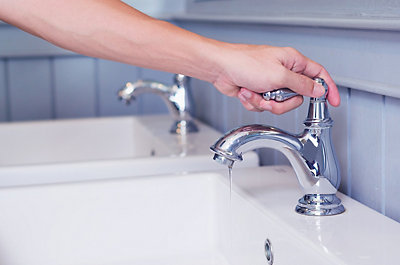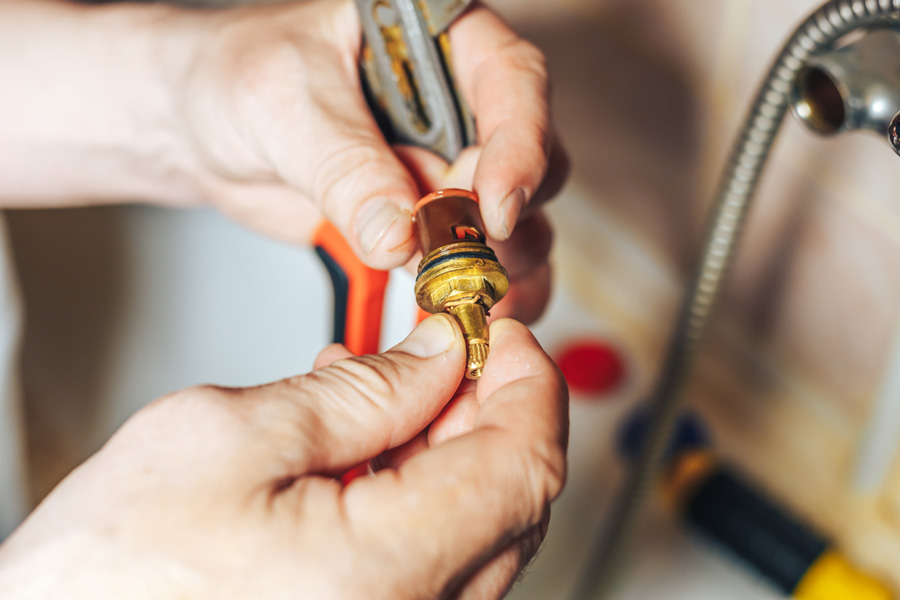How It's Needed to Fix a Malfunctioning Faucet
How It's Needed to Fix a Malfunctioning Faucet
Blog Article
We have stumbled on this post involving What Causes Leaky Faucets & How To Fix Them below on the internet and accepted it made sense to share it with you here.

Leaking faucets may appear like a minor hassle, but their impact surpasses simply the aggravation of the audio. From drainage to sustaining unnecessary financial prices and wellness threats, neglecting a trickling faucet can result in various consequences. In this article, we'll look into why it's critical to resolve this typical house issue immediately and efficiently.
Wastage of Water
Ecological Influence
Leaking faucets add substantially to water waste. According to the Environmental Protection Agency (EPA), a single faucet leaking at one drip per second can throw away more than 3,000 gallons of water per year. This not just strains water sources however also impacts ecosystems and wild animals dependent on them.
Step-by-Step Guide to Dealing With a Dripping Tap
Tools Called for
Before trying to take care of a dripping faucet, collect the necessary devices, including an adjustable wrench, screwdrivers, substitute parts (such as washing machines or cartridges), and plumber's tape.
Common Tap Issues and Their Solutions
Identify the type of tap and the specific problem causing the drip. Typical problems include worn-out washing machines, corroded valve seats, or faulty O-rings. Describe manufacturer directions or online tutorials for step-by-step advice on repair work.
Financial Prices
Enhanced Water Costs
Beyond the ecological impact, trickling faucets can pump up water costs substantially. The collected wastefulness in time equates right into higher utility expenditures, which might have been stayed clear of with timely repair work.
Possible Home Damages
Moreover, extended leaking can bring about damage to fixtures and surface areas bordering the faucet. Water accumulation can trigger discoloration, deterioration, and even structural issues if left ignored, causing added repair expenses.
Health and wellness Worries
Mold and Mildew Growth
The continuous existence of dampness from a trickling faucet creates an optimal atmosphere for mold and mildew and mildew growth. These fungi not only endanger interior air top quality but also pose health risks, particularly for individuals with respiratory conditions or allergic reactions.
Waterborne Diseases
Stationary water in leaking faucets can end up being a breeding place for microorganisms and other pathogens, boosting the danger of waterborne conditions. Impurities such as Legionella bacteria prosper in stagnant water, possibly causing significant illnesses when ingested or inhaled.
DIY vs. Expert Repair
Benefits and drawbacks of Do It Yourself Repair
While some might attempt to deal with a trickling tap themselves, do it yourself repair work include their own set of challenges. Without proper expertise and tools, DIY efforts can intensify the problem or lead to incomplete repairs, prolonging the problem.
Benefits of Employing an Expert Plumber
Working with a professional plumber ensures that the underlying source of the leaking tap is resolved efficiently. Plumbing technicians possess the knowledge and tools to detect and fix faucet problems efficiently, conserving time and minimizing the danger of further damages.
Ecological Obligation
Specific Contribution to Preservation
Taking responsibility for repairing trickling faucets straightens with wider initiatives toward water preservation and ecological sustainability. Every individual's actions jointly make a significant effect on maintaining precious resources.
Lasting Living Practices
By focusing on prompt repair services and adopting water-saving practices, people add to sustainable living methods that profit both existing and future generations.
Preventive Measures
Regular Maintenance Tips
To stop dripping faucets, do regular maintenance such as cleaning aerators, checking for leakages, and changing worn-out parts quickly. In addition, consider setting up water-saving tools or upgrading to much more effective components.
Relevance of Prompt Repairs
Dealing with leaking taps as quickly as they're seen prevents further water wastage and potential damage, eventually saving both water and money over time.
Effect On Residential Or Commercial Property Value
Perception of Well-Maintained Residential Property
Keeping a property in good condition, including addressing upkeep concerns like leaking faucets, improves its viewed worth and charm amongst potential purchasers or renters.
Influence on Resale Value
Residences with well-kept plumbing fixtures, consisting of taps, command higher resale values in the property market. Dealing with leaking faucets can contribute to a favorable perception during residential or commercial property evaluations and negotiations.
Verdict
Resolving a leaking faucet surpasses plain comfort; it's an important action towards conserving water, lowering financial prices, and protecting health and building. Whether with DIY fixings or expert aid, acting to fix trickling faucets is a tiny yet impactful way to advertise liable stewardship of resources and add to a healthier, a lot more sustainable future.
How to Fix a Leaky Faucet: Step-by-Step Repair Guide
A leaky faucet may seem like a simple annoyance, but if it's not fixed promptly, that leak could cost hundreds to potentially thousands. From water damage to mold, mildew, and high water bills, even a tiny leak can be catastrophic if left unattended. Damage like this can even affect the overall value of your home, so it's important to take the right approach for leaky faucet repair. You may need the help of a plumber in some cases, but we've got a few tips you can try on how to fix a leaky faucet before calling the pros.
Four Faucet Types
When you're learning how to fix a leaky faucet, the first step is knowing what kind of faucet you're working with! There are four common types.
Cartridge Faucets
Cartridge faucets come in one- or two-handled varieties. In one-handled cartridge faucets, hot and cold water combines in a single cartridge. In the two-handled versions, hot and cold water are controlled separately and mixed in the faucet.
Ball Faucets
Ball faucets have a single lever you push up and down to adjust the pressure and rotate to change the temperature. A slotted metal ball controls the amount of water allowed into the spout.
Compression Washer Faucets
They're the oldest type of faucet, but they're still used in many homes — especially older ones. Compression faucets have two separate handles that, when turned, raise or lower the washer that seals a water valve. This valve stops water from flowing through the faucet when it is turned off.
Disc Faucets
Disc faucets rarely need to be repaired due to their maintenance-free design. The water flow is controlled by two discs — the upper one raises and lowers against a fixed lower disc, creating a watertight seal. If your disc faucet starts leaking, you may need to replace the seals or clean residue buildup from the inlets.
Fixing a Leaky Faucet
Step 1: Turn Off the Water
Whether you're learning how to fix a leaky bathtub faucet or how to fix a leaky kitchen faucet, always turn off the water supply to your working area when you're fixing a leak. The last thing you want is a flood added to your list of things to fix.
Look for the shutoff valves below your sink or around the tub and turn them clockwise to stop the water flow. If your faucet doesn't have shutoff valves, you may need to turn off the water for the whole house. Check to make sure it's off by turning the faucet on. If nothing comes out, you're ready to start the repair.
Step 2: Take Apart the Faucet
How you disassemble your faucet depends on the type of fixture you have. You can use a flathead screwdriver to remove the caps on top of the handle or handles for cartridge and compression faucets. Inside, you should see handle screws. Unscrew these with a screwdriver to remove the handle.
Disc- and ball-style faucets will typically have an inlet screw near the handle, and removing that will reveal the interior of the faucet.
Detach the Valve Stem
For cartridge- and compression-style faucets, you'll see the inner valve stem or cartridge once you remove the faucet handles. If you have a compression faucet, unscrew the brass valve stem. If you have a cartridge faucet, pull out the cartridge. If your cartridge has been in place for a while, it may require some tools or extra force to remove it due to mineral deposits.
Examine and Replace Parts
Once you've removed the parts, check them out to confirm what needs to be replaced. You may see corroded rubber washers, O-rings, stems, or cartridges. On a ball-style faucet, check the seats and springs for damage.
If you need to repair a leaky disc faucet, check the inlet and seals on the lower disc.
Once you determine what parts must be replaced, visit your local hardware store. Bring the damaged parts with you to ensure you can purchase the correct components to replace them.
Clean Valves and Faucet Cavity
If you've removed a stem or cartridge, you may notice mineral buildup in the faucet's threads. Use white vinegar to clean the valve seat by soaking it for a few minutes, then scrub it away with a soft toothbrush and rinse with warm water. You can also clean the interior of the faucet in the same way.
Reassemble the Faucet
Once your faucet is cleaned and the required parts have been replaced, it's time to reassemble it. Put the pieces back together and slowly turn the water supply back on. Doing this slowly is crucial because too much initial water pressure can damage the new hardware you've just installed.
https://homewarranty.firstam.com/blog/how-to-fix-leaky-faucet

I discovered that blog entry on Why It's Important to Fix Leaky Faucets while doing research the web. Do you know another individual who is occupied with the niche? Take a moment to promote it. I treasure reading our article about Why It's Important to Fix Leaky Faucets.
Report this page